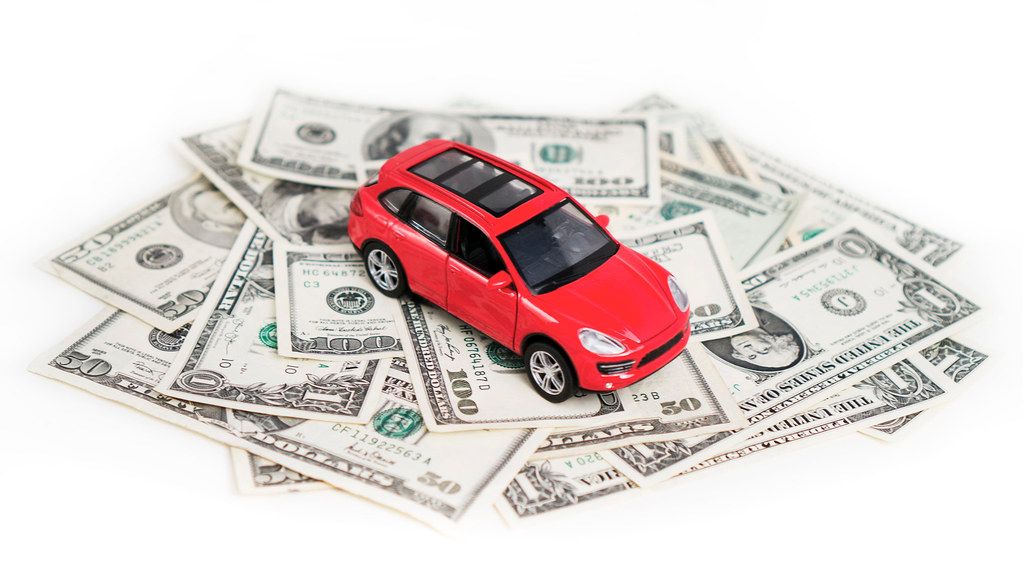
Americans really do love their vehicles, whether it’s an SUV, a truck, a sleek crossover, or a reliable family van. We spend countless hours in them, making memories on road trips, commuting to work, and tackling daily errands. But here’s the kicker: as much as we adore our cars, the process of actually *buying* one, especially from certain car dealerships—or what some affectionately call “stealerships”—can feel like navigating a minefield. It’s no wonder that buying a car often ranks high on the list of stressful life events!
This problem isn’t just a minor annoyance; it’s significant enough that the Federal Trade Commission (FTC) stepped in last year, launching its Combating Auto Retail Scams (CARS) initiative. This new rule is a big deal, expected to save consumers over $3.4 billion and an astonishing 72 million hours annually. That’s a huge testament to how prevalent these tricky tactics can be and how much impact they have on our wallets and peace of mind. While many car dealers genuinely want to help you find the perfect ride fairly, others are definitely out to take advantage of less-informed buyers.
But here’s the good news: you don’t have to be one of those less-informed buyers. You can turn the tables and approach your next car purchase with confidence and savvy. By understanding some of the most common sales tactics and red flags, you’ll be well-equipped to spot any shadiness from a mile away. So, buckle up, because we’re about to dive into 15 sneaky car dealership tricks that you absolutely need to watch out for to ensure you drive away with a great deal and no unwanted surprises!

1. The Classic Bait & Switch
Imagine this: you’ve been scrolling online, and a specific car catches your eye—a fantastic model, perfectly within your budget, advertised at an unbeatable price. You get all excited, picture yourself behind the wheel, and make the trip to the dealership, ready to seal the deal. This, my friends, is the “bait.” It’s designed to get you through the showroom doors, hopeful and eager.
But here’s where the “switch” comes in. Once you arrive, a friendly salesperson greets you, only to deliver the crushing news: “Oh, that car? It *just* sold.” Or, “It was a special promotion, and we don’t have that exact model anymore.” It’s a classic, dishonest sales tactic, explicitly described in the context as a “devious scheme” where the advertised vehicle is conveniently “just recently sold.” The context further explains that this tactic is “used to get potential customers into the store with the hopes that they will fall in love with a more expensive car on the lot.”
Upon delivering this “bad news,” the salesperson will then smoothly pivot, trying their best to convince you that, actually, this *other* car—which, surprise, is more expensive—is totally what you need. They might even try to “push certain vehicles” that aren’t what you came for. The goal is to get you emotionally invested, even if the original “bait” is gone, and then upsell you. To avoid this, “be firm about the vehicle you want” and research its true cost beforehand. If the car you want isn’t there, “you can always visit another dealership.”
Read more about: Your Wallet & Taste Buds Will Thank You: 14 Convenience Store Foods Shoppers Are Calling ‘Unappetizing’ and ‘Overpriced’

2. The Monthly Payment Illusion
Ever walked into a dealership and felt like the salesperson was a mind reader, immediately honing in on “what monthly amount you’re comfortable with”? This isn’t a superpower; it’s a strategic move. They’ll chat you up, build rapport, and then work their magic to present a monthly payment that seems almost too good to be true. And often, it is.
The trick here is “downplaying the total price.” While a low monthly payment might seem appealing, it can be incredibly misleading. It could lull you into believing you can afford a car that’s actually well outside your budget. The context warns that “A low payment could mislead you into believing you can afford a more expensive car than your budget can handle.” This isn’t just about making you feel good; it’s about obscuring the full financial picture.
One common way they achieve these “super-low monthly payments” is by simply extending the loan duration, sometimes to “60 months or more.” This dramatically lowers the individual payment, but it means you’ll pay “interest for longer, paying more for your loan overall.” You could end up “upside down” on your loan, owing more than the car is worth. So, remember the golden rule: “Focus on the total amount you pay rather than the monthly payment.” Never, ever tell them your ideal monthly payment; instead, “Stick to saying, ‘I can afford to pay X dollars for the car.'”
Read more about: The Unvarnished Truth: Inside Kelly Clarkson and Brandon Blackstock’s Complex Marriage, Divorce, and Lingering Legacy

3. The Trade-In Tango (Lowball & Highball)
Your old car has served you well, and now it’s time to find it a new home. You might consider selling it privately to avoid “insultingly low trade-in valuations from auto dealerships.” But some savvy salespeople have tricks for this too. They might make a “better-than-expected offer” for your trade-in, only to “boost your monthly car payments to claw back that extra trade-in valuation” without you even realizing it. It’s a classic shell game with your money.
On the flip side, another deceitful tactic is the “high over-the-phone offer for trade-ins.” You call ahead, get an excitingly high quote for your vehicle, and head to the dealership feeling confident. But once you’re there and they inspect your car, the offer suddenly “revise[s] downward.” They’ll claim your vehicle’s “overall condition warrants a lower trade-in valuation.” The context states, “You can be pretty sure they never intended to honor the high over-the-phone offer.” It’s a ploy to get you on the lot, where you’re more likely to feel committed to a purchase.
To combat these tricks, the best defense is a good offense. “Treat each transaction the same way the dealer does: separately.” Shop your trade-in around at “multiple dealers to get the best price.” Also, “check your credit score against the average auto loan rates before hitting the dealership.” Don’t let them bundle the trade-in value into the larger negotiation; insist on a fair, standalone appraisal for your old vehicle. Your goal is to get the best value for your trade-in, not to have it disappear into the murky waters of a complicated deal.

4. The Odometer Deception
You might think in this digital age, “odometer fraud” is a thing of the past. Sadly, you’d be wrong. It’s a serious scam where someone “tampers with a vehicle odometer so that it displays a lower-than-accurate reading.” The numbers are staggering: the National Highway Traffic Safety Administration “estimates 450,000+ vehicles are sold annually with incorrect odometer readings,” costing American car buyers “north of $1 billion each year.” That’s a whole lot of trust being broken, and a lot of money being lost.
This trick artificially inflates a car’s perceived value. A car with fewer miles on the clock seems like a better deal, less worn, and more reliable. This makes it easier for dishonest sellers to ask for a higher price than the vehicle is truly worth. It preys on the natural desire for a well-preserved car, making a poor investment look like a steal.
How do you protect yourself from this stealthy scam? The advice is clear: “Shop at reputable dealerships, and be wary of vehicles with unbelievably low mileage.” If you see, for instance, a 1980 sedan claiming “35,000 total miles,” your suspicion alarm should be blaring. Americans on average drive “14,263 miles annually,” so huge discrepancies should prompt serious investigation. While “a super-low mileage reading doesn’t necessarily mean fraud is at play, you must do your homework and ask the right questions.” A vehicle history report is your best friend here.
Read more about: Decoding the Silence: Unmasking 14 Warning Signs Your Partner Is Hiding You From Their Family

5. The Vague Contract Trap
Signing a contract should feel like a clear agreement, but some dealerships make it feel like deciphering an ancient scroll. “Sneaky car dealerships also use vague contracts,” filled with “language and terminology most people aren’t familiar with.” This isn’t accidental; it’s a deliberate tactic to “confound consumers” and hide unfavorable terms or additional charges in plain sight, or rather, in dense legal text.
This trick thrives on your eagerness to get the keys and your understandable desire to avoid slogging through pages of legalese. They know most people won’t meticulously read every single clause, especially after a long day of negotiating. The confusing jargon and small print create an environment where “hiding details in the fine print” becomes incredibly easy, potentially costing you “hundreds of dollars more than you intended to pay.”
The solution is simple, yet often overlooked: “Before signing any contracts, ask questions. Don’t sign the contract and ask questions later.” Reputable lenders and dealers will be “upfront about what’s in your contract,” and any issues should be “fixed without complaint or pushback.” Read over the contract carefully, “ask about all charges and make sure the terms are clear to both you and the dealer.” And if you feel rushed or confused, remember: “If not, walk away and find a dealer that will.”
Read more about: Unlock Your Brain’s Full Potential: 14 Science-Backed Habits to Outsmart ‘Brain Rot’ and Boost Your Cognitive Power

6. The Unnecessary Add-Ons Push
So, you’ve settled on a car, and you’re almost at the finish line. Then comes the finance manager, who starts listing a host of “add-ons” that sound incredibly important, like an “extended warranty, paint protection, GAP insurance, and tire and wheel protection.” These are presented as essential, but here’s the secret: they’re often “optional,” and can “deduct thousands of dollars from the total purchase price by waiving the warranty.”
The trick here is to “push unnecessary insurance” and other services, often implying they are mandatory or inextricably linked to your financing. The context explicitly states, “Some car dealers will insist that you must get a warranty to get a car loan.” This is a flat-out falsehood. You “don’t have to buy a warranty” or other protections from the dealership. While some of these products, like GAP insurance, might offer genuine peace of mind in specific situations, they are almost always cheaper if purchased from a third party or your regular insurance provider.
To navigate this, “Don’t automatically agree to the insurance offered.” Be aware that “some insurers include gap insurance with regular comprehensive coverage.” As for “credit life insurance,” the context advises, “you’ll more than likely want to avoid it. In most cases, it won’t make sense for you.” These “over-the-top dealers fees” are often pure profit centers for dealerships, and your firm “no” can save you a bundle. Remember, you have the right to decline these extras.
Read more about: Unmasking the Trust Deficit: Why Car Dealerships Are Struggling to Connect with Today’s Buyers and How They Can Rebuild Confidence

7. The MSRP Misdirection
When you look at a car, one of the first things you notice is the “sticker price,” which often prominently displays the Manufacturer’s Suggested Retail Price, or MSRP. Dealers love to “emphasize MSRP” because it sets a baseline, often making buyers feel like they’re getting a deal if the price is slightly below it. But here’s the insider tip: the MSRP is just that—a suggestion.
The real trick comes in two forms: first, dealers might imply the MSRP is the non-negotiable price, steering you away from deeper discounts. Second, and more egregious, especially when demand is high, is when they charge “prices above MSRP.” The context makes it clear: “While setting a car price above the MSRP isn’t illegal, it’s a raw deal for car buyers.” You certainly don’t “want to pay more for a car than the sticker price,” but it’s “perfectly legal for car dealerships to do so if the demand exceeds the supply.”
Instead of fixating on the MSRP, you need to arm yourself with better information. The context advises, “ask for the invoice price instead.” This is “what the dealer paid for the vehicle, and knowing the invoice price helps you understand the dealer’s markup.” Websites like Kelley Blue Book and Edmunds are your allies here, helping you “research what different models are selling for.” Don’t be shy to “ask for the numbers you need to make an informed decision.” Knowing the invoice price gives you leverage to negotiate your “out-the-door (OTD) price,” which includes all taxes and fees.
The first seven tricks unpacked initial deceptions and confusing pricing, from the classic bait-and-switch to those sneaky add-ons. Now, let’s dive deeper into the financial finesses and high-pressure closing techniques some dealerships employ. These can really mess with your head and your wallet, often involving deceptive financing, emotional manipulation, and even illegal title scams. You’ve got this, future savvy car shopper!

8. The Cosign Conundrum
Imagine this: you’re trying to secure a car loan, and the dealership subtly suggests bringing in a cosigner. They might frame it as a helpful way to get approved or secure a better rate. While it’s “not a scam, per se,” as the context clearly states, it’s definitely a “shady” move.
Here’s the harsh reality of cosigning: if you, as the primary borrower, hit a snag and “can’t pay,” your cosigner is left holding the bag. They become “responsible for the loan.” This means their credit is on the line, and any missed payments will hit their score, creating a massive financial burden.
The question you really need to ask yourself is, “Why would you put that burden on someone else?” It’s a serious commitment that can strain even the strongest bonds. Explore all other financing avenues before considering this option, to avoid placing such a heavy weight on a friend or family member.

9. The Inflated Interest Rate
You walk into the dealership, feeling good about your credit, but then the finance manager delivers the “news”: “your credit doesn’t allow for the best interest rates.” It’s a gut punch, right? While your credit score does dictate rates, some salespersons twist this information to their advantage.
They might claim you don’t qualify for competitive rates, even if you do. This isn’t just misinformation; it’s a strategic maneuver “to make more money by charging higher-than-necessary interest rates.” You end up paying significantly more over the life of your auto loan, all because they undervalued your credit score.
The “Key takeaways” section warns that “some dealers may try to convince you that your credit is worse than you think.” This seemingly small deception can cost you “hundreds of dollars over the life of your auto loan.” It’s a sneaky way to pad their profits at your expense.
Arm yourself with knowledge. “Check your credit score against the average auto loan rates before hitting the dealership.” Better yet, “arrive with preapproval in hand.” This empowers you to confidently challenge any inflated interest rates they might throw your way.
Read more about: Why Your Favorite Streaming Shows Keep Getting Axed: Unpacking the ‘Great Streaming Correction’

10. The “All Credit Approved!” Trap
Ever seen flashy ads promising, “All Credit Applications Approved!”? It sounds like a dream, especially if you’re worried about your credit history. But let’s be real: “There’s no way that everyone can be approved.” This isn’t universal generosity; it’s a meticulously crafted illusion.
This tactic is designed purely “to get everyone, even people with no business financing a vehicle, to come to the car dealership.” They want bodies in the showroom, regardless of their financial viability. Once you’re through the door, invested and hopeful, their strategy shifts.
A salesperson will then cunningly “pick which ones to focus on,” often leaving those with truly challenging credit histories disappointed. It’s a deceptive bait designed to cast a wide net, drawing in as many potential customers as possible, only to filter them once they’re on the lot. Don’t fall for the universal approval myth.

11. The Payment Packing Ploy
You’ve negotiated the price, feeling good, and then you’re in the finance office, staring at a monthly payment that seems a little… off. This might be “payment packing,” a slick “trick some car dealerships use to inflate the amount you pay for your vehicle” without your express consent.
How do they do it? A salesperson might subtly “add things, such as an extended warranty,” or other services you never requested, directly into your loan. The context states, “And this is done without getting your permission.” These hidden additions directly “boost your monthly payment.”
Suddenly, that great deal you thought you secured is far less appealing. You’re paying for extras you either didn’t want or could have gotten much cheaper elsewhere. It’s a classic example of obscuring the true cost by bundling unwanted items into the financing.
Always scrutinize your contract for unexpected line items before signing. These “over-the-top dealers fees” for optional add-ons are often pure profit. If you didn’t explicitly ask for it and agree, it shouldn’t be there. Don’t let them pack your payment with unapproved expenses!
Read more about: Your Definitive, Step-by-Step Guide to Buying a Used Car: Avoid Pitfalls and Drive Away with Confidence

12. The Over-Promise and Under-Deliver Disaster
Beware of dealerships that seem to offer you the world. We’re talking about places that “promise you the sun, the moon, and the stars” to entice you. Whether it’s an unbelievably low price, a host of complimentary services, or guaranteed financing, your alarm bells should be ringing.
The reality is often far different from the glossy picture they paint. “Some car salespersons will say whatever it takes to get you to come down to the showroom.” Their primary goal is to get you on their turf, abandoning initial grand promises once you’re physically present.
Once you’re there, that special offer might have evaporated, promised features aren’t available, or financing terms are vastly different. This “over promise and under deliver” strategy can leave you frustrated, misled, and pressured to accept a less favorable deal.
Approach extravagant claims with skepticism. If a deal seems too good to be true, it almost certainly is. Insist on getting every single promise in writing before you even consider making the trip to the dealership.

13. The “Hard of Hearing” Hustle
Ever felt like a salesperson just isn’t listening to you, no matter how clearly you state your preferences? You might be encountering the “hard of hearing” hustle. This isn’t an actual hearing impairment, but rather a strategic “selective hearing.”
A salesperson might “pretend to listen to your instructions but behave like they didn’t hear a thing.” You set a firm budget of, say, “$25,000,” and what happens? They show you cars “well above that price.” It’s frustrating and a clear sign they aren’t prioritizing your needs.
This trick undermines your boundaries and attempts to subtly push you towards more expensive vehicles or options you clearly stated you didn’t want. They’re banking on you feeling too awkward or invested to repeatedly correct them.
To counter this, be prepared to firmly reiterate your limits and preferences. If a salesperson consistently ignores your requests, it’s a major red flag. Don’t be afraid to walk away if your needs are repeatedly disregarded.

14. The Not-in-Writing Nightmare
This is one of the most fundamental rules of any major purchase, especially for a car: “A trick you must avoid is failing to get things in writing.” Verbal agreements, no matter how sincere, are incredibly difficult to enforce later.
“If a car salesperson wants to be sneaky, they can promise you many things — without writing anything down — and then deny it later.” This could be a promised repair, an included feature, or even a different price. Without written proof, it becomes your word against theirs.
The context emphasizes, “Putting everything in writing — no exceptions — protects you and the car dealership.” A clear, written contract leaves no room for ambiguity or forgotten promises, serving as an official record of agreements.
Always “read over the contract carefully.” “Ask about all charges and make sure the terms are clear.” “Keep a copy of the contract” for questions or disputes. If a dealer pushes back on putting things in writing, find another dealership.

15. The Emotional Rollercoaster
Buying a car is a huge deal, and it’s natural to feel excited or nervous. But here’s a crucial warning: “One of the worst things you can do is look too excited when shopping at a car dealership.” Salespeople are pros at reading emotions.
“Car salespersons will know if you’re emotionally attached to a specific make or model.” That glint in your eye when you see your dream car, or your sigh of relief when you think you’ve found “the one,” is a clear signal they’ll exploit.
Once they sense that emotional attachment, “they may play on your emotions and get you to overpay.” You’re less likely to walk away or negotiate hard if you’re already picturing yourself in that car. This is coupled with “high-pressure sales tactics.”
To avoid this trap, maintain a neutral demeanor. Keep your cards close; don’t reveal how much you love a car until you’ve settled on a price. Remember, it’s a business transaction, and you hold the power to walk away. “Don’t fall for the trap!”
Read more about: Beyond the Red Carpet: 11 A-Listers Who Got Real and Revealed Their True Selves in Unforgettable Candid Moments
Driving away with confidence and a great deal is totally within your reach! Understanding these sneaky dealership tricks puts you miles ahead. Whether it’s tempting low payments, mysterious add-ons, or emotional manipulation, preparedness is your best defense. Take a deep breath, do your homework, and remember you’re in control. Don’t be afraid to ask questions, stand firm, and walk away if something feels off. Your perfect ride, at a fair price, awaits a savvy buyer like you!



